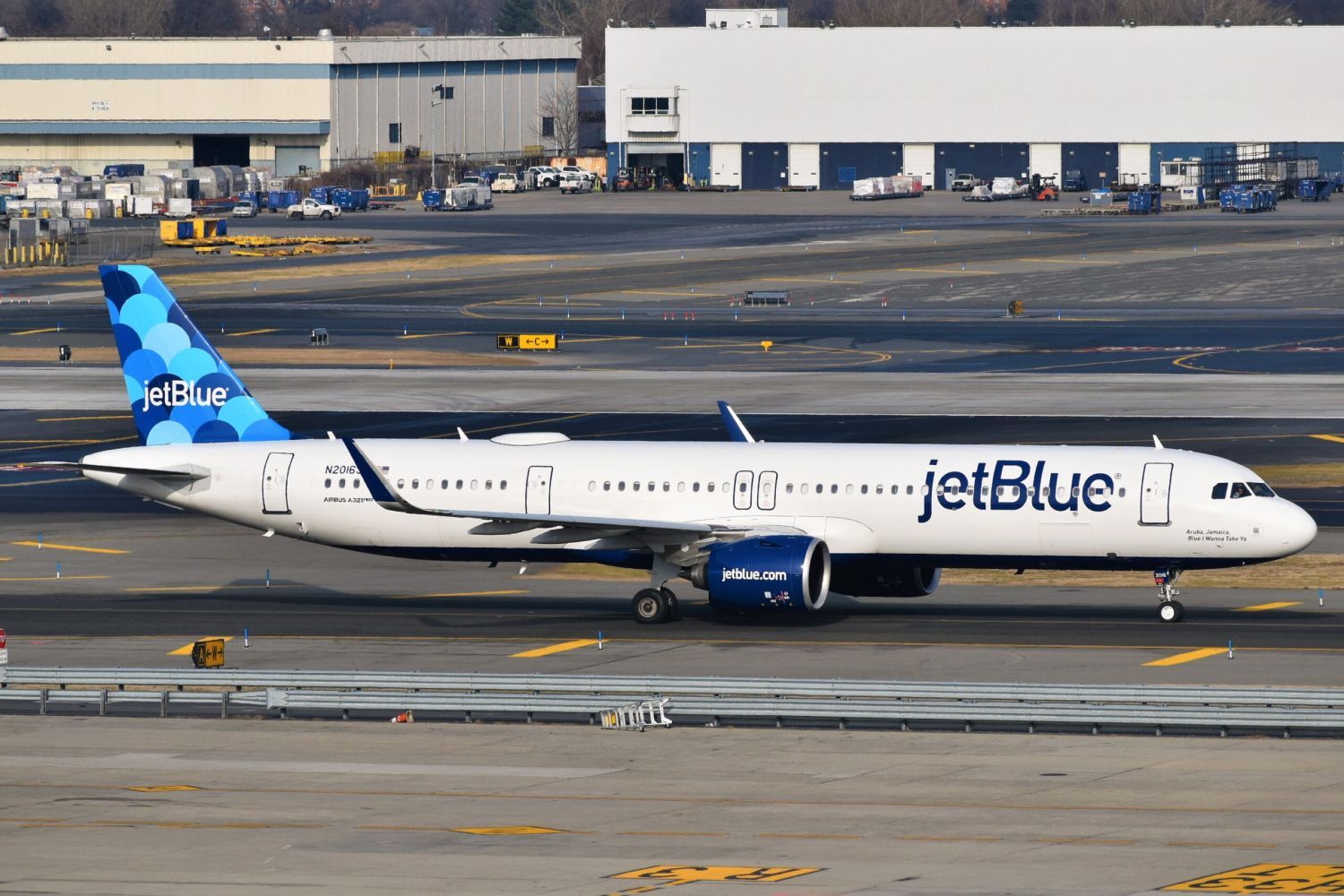U.S. low-cost airline JetBlue announced yesterday that it will work to achieve carbon emissions neutrality by 2040, ten years ahead of the airline industry’s stated deadline for reaching this goal. To this end, it said it will increase the investment in lower-emission solutions for its operations in the near term and evaluate future ones, which will depend on new advances and developments.
In a press release, the company pledged to «reduce jet fuel emissions 50% per revenue tonne kilometer» by 2035 compared to 2019 levels. The near-term emissions reduction goal will require a focus «on lower-carbon solutions within the operation, which can only be successful with industry and policy support», the New York-based company stated.
In addition, JetBlue said it will periodically evaluate and update its initiatives in relation to the Science-Based Targets (SBTi), a joint initiative between public institutions, non-governmental organisations and private sector actors to set greenhouse gas emissions reduction targets based on scientific reports.
«Effectively cutting our per-seat emissions in half will require substantial change to the way we run our business today», said Robin Hayes, CEO of JetBlue. «We are calling on governments, aircraft and engine manufacturers, and fuel producers to support the development of the products and solutions that airlines need to achieve our ambitious goals», he added.
Importance of sustainable fuel and new technology developments
JetBlue expects sustainable aviation fuel (SAF) to be the key contributor to large-scale emissions reductions in the coming years. However, this will depend to a large extent on the availability and costs associated with the use of this type of fuel, the production of which is still in its infancy.
Advances in low-emission technologies, improved fuel efficiency and optimisation of air traffic management procedures represent further opportunities to advance the decarbonisation of the industry.
Finally, JetBlue committed to increase investment in carbon offsetting mechanisms to address emissions that cannot be avoided.
«The aviation industry is at a critical time in our push towards net zero», said Sara Bogdan, JetBlue’s Director of Sustainability and Environmental Social Governance. «Many of these lower carbon solutions are proven, but still haven’t achieved the scale needed to make a meaningful impact», she added. Bogdan remarked that these technologies need to be encouraged and concluded: «The investments we make today will help shape the trajectory of these solutions as they grow to realize their fullest potential».
Reducing emissions from currently available resources
JetBlue highlighted fleet renewal as one of the most efficient measures to reduce emissions in the near term, as many of the alternatives that would allow to achieve carbon neutrality by 2040 are still being studied and developed, or are currently cost prohibitive to implement on a larger scale.
The company highlighted the fuel savings made possible by the growing number of Airbus A321neo aircraft in operation, as well as the new Airbus A220s, which reduce emissions by up to 35% per seat compared to the previous-generation aircraft they replace. In the same vein, JetBlue confirmed that it will accelerate the retirement of Embraer E190s: the last of these would be deprogrammed in 2025.
Reducing emissions on the ground
To reduce the impact of ground operations, the company set a target to replace 40% of its three main types of airport service vehicles with electric units by 2025 and to have 50% electric vehicles by 2030.
See also: JetBlue adds Paris as its first destination in continental Europe


Comentarios
Para comentar, debés estar registrado
Por favor, iniciá sesión